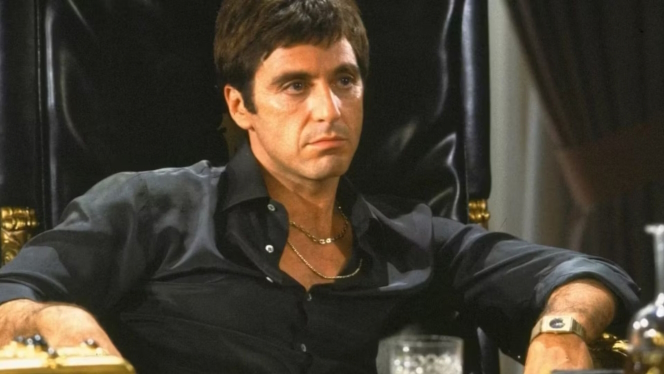MOVIE NEWS – Why did Brian De Palma have to fire Oliver Stone from the filming of Scarface? Here’s how the two director-legends remember the events…
Regarded as one of the best gangster films of the 80s, Scarface is still a popular reference point, thanks to its stylish violence, characterization and rough naturalism. The film is a remake of Howard Hawks’ 1932 crime film of the same name, which was, in turn, based on the Armitage Trail novel of the same name. The original film was inspired by Al Capone, whose famous scar it was named after. However, instead of following its predecessor, the remake took a different path and focused on a Cuban immigrant who became Miami’s biggest gangster.
Unlike other critically acclaimed gangster films, Scarface did not win Oscars or dominate the box office. Initially, they were hated so much that Brian De Palma even got a Razzie nomination for Worst Director! Eventually, everyone realized they were wrong. The 80s film is now a favourite of many, including Martin Scorsese. However, as with many successful films, the production process was extremely chaotic. At one point, things got so bad that Brian de Palma was forced to fire screenwriter Oliver Stone from the set…
Oliver Stone didn’t want to leave the set of Scarface
Scarface undoubtedly has one of the most exciting stories of all the celebrated gangster films. Interestingly, Oliver Stone was not so gracious about leaving after his work was done. Speaking to THR, Brian De Palma revealed that he had to fire the screenwriter from the set for one simple reason: too many cooks spoil the broth.
“He was talking to the actors on the set. You can’t have two voices on the set. I said to the producer, you have to have him leave cause there can only be one eye on the set, and that’s mine.”
The director explained the matter in the documentary De Palma by Noah Baumbach and Jake Paltrow.
He added:
“He felt I wasn’t doing the movie the way he wanted to do it. But you can’t have an actor getting two points of view from two different people. It just confuses them. They need a single voice.”
As evil as the director may seem, he was right. De Palma had two bosses on the set – Al Pacino and Martin Bregman – so he wasn’t in the mood to take unsolicited advice from a young man with no proper CV. Since Stone wrote the story, he may have felt he had a say in how it played out on screen, but that was none of his business.
Most importantly, Stone has not demonstrated that he should be given a free hand. At that time, he only directed the horror films The Hand and Seizure. What did you know about gangster movies? It took a few more years for the Oscar-winning war film Platoon to bring him his breakthrough success.
How did Stone react to being fired?
Oliver Stone did not take the decision well at first. After the film’s release, it published a four-page review, prompting many critics to give it a bad first review as well. But Stone’s frustration was not just that he wasn’t given the opportunity to tap into his creative powers.
De Palma claimed that Stone was nearly killed while researching the film because some underworld figures thought he was an informant for another faction. In addition, Stone was struggling with drug addiction at the time. To make matters worse, he was in the process of divorcing Nancy Allen. Understandably, the combination of these factors made him very irritable.
Stone still has mixed feelings about De Palma today. In an interview with GQ, he admitted that there are some things he doesn’t like about the director.
“I don’t understand Brian. He’s very obtuse. He doesn’t give his emotions away. He certainly had a sardonic sense of humor. He didn’t seem to enjoy the process of people. He didn’t seem to like people as much as I would.”
Still, Stone understands why De Palma handled things the way he did. He’s also grateful for more access to the set than a writer arguably should have at the time. In addition, Stone admits that he was tolerated for a long time due to his close relationship with Al Pacino, but it is never good when the writer and the main character are too close.
Such a dynamic makes the director’s job difficult, which De Palma also had to deal with. Considering these issues, it’s quite amazing how great this movie works. And this is thanks to De Palma. Quiet, contemplative, and seemingly aloof, he appreciated everyone’s input. Because of this, he also navigated the filming chaos well.


![[TGA 2025] Star Wars: Galactic Racer Focuses on High-Stakes Podrace Runs [VIDEO]](https://thegeek.games/wp-content/uploads/2025/12/theGeek-Star-Wars-Galactic-Racer-302x180.jpg)









![[TGA 2025] Star Wars: Galactic Racer Focuses on High-Stakes Podrace Runs [VIDEO]](https://thegeek.games/wp-content/uploads/2025/12/theGeek-Star-Wars-Galactic-Racer-300x365.jpg)



Leave a Reply